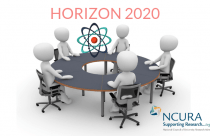New Research Initiatives under Horizon 2020

Horizon 2020 is an initiative by the European Union. This research and innovation programme will funnel €80 billion between 2014 and 2020 to support scientific breakthroughs and drive economic growth. The European Commission has recently announced its investment plan for the last leg of the programme from 2018 to 2020. It will provide €30 billion from Horizon 2020 program to support research in critical areas such as climate change, migration, clean energy, and more. Horizon 2020 work programs are how funding opportunities are given to scientists. The current work program covers 17 research areas. There are four focus areas that are present across themes and are in line with EU’s policies: ‘Building a low-carbon, climate resilient future’ (LC); ‘Connecting economic and environmental gains–the Circular Economy’ (CE); ‘Digitising and transforming European industry and services’ (DT); and ‘Boosting the effectiveness of the Security Union’ (SU).
New Research Focus
Horizon 2020 will continue its mission to support innovation and entrepreneurship. From 2018-2020, the program will fund more critical research areas that are in line with EU’s political primary considerations. The focus will be on:
- Building a low-carbon, climate resilient future (€3 billion)
- Connecting economic and environmental gains – the circular economy (€1 billion)
- Digitizing and transforming European industry and services (€1.7 billion)
- Boosting the effectiveness of the Security Union (€1 billion) and
- Migration (€200 million)
These focus areas are expected to have a major impact. As an example, the focus on climate resilience aligns with the Paris Climate Agreement. It will support innovative products that result in carbon neutrality and climate resilience by the second half of the century. It will also prioritize renewables, energy efficiency in buildings, electro-mobility, and energy storage solutions.
In addition, the Commission will use €2.7 billion of Horizon 2020 money to set up phase one of the European Innovation Council. The Council will support high-risk, high-gain projects. It will support innovators, entrepreneurs, small companies and researchers to bring and scale-up their ideas to the market.
The new work program will involve international collaboration. European researchers will work with Canadian counterparts on personalized medicine. In addition, collaboration with the USA, South Korea, Singapore, and Australia will investigate road transport automation. Researchers will work with India on water challenges and with Africa on food security and renewable energy.
Under the new work program, EU will actively support Open Science by investing upto €2 billion. It will encourage scientists to share data earlier in the research process. This is a shift away from publishing research in journals. The program has also set aside €600 million for the European Open Science Cloud, European Data Infrastructure, and High-Performance Computing.
Additionally, Horizon 2020 will continue to fund curiosity-driven research, sometimes called “blue skies research”.
Impact on European Development
It is expected that this investment in research will drive economic development. The Horizon 2020 program was designed to support innovators. It has led to the discovery of exoplanets, the Higgs boson, and gravitational waves. Carlos Moedas, the Commissioner in charge of Research, Science, and Innovation said that Horizon 2020 and the European Innovation Council will act as a springboard to help European innovators become world leading companies. The European Commission would like all member states to participate in Horizon 2020. They have allocated €460 million for member countries who are not yet actively participating in the program.
Horizon 2020 is projected to spend €30 billion in its last two years. This investment is expected to boost levels of innovation within the European Union. EU researchers will continue to engage in international collaborations. This will expand the potential impact of the program to boost economic growth, job creation, and innovation.







